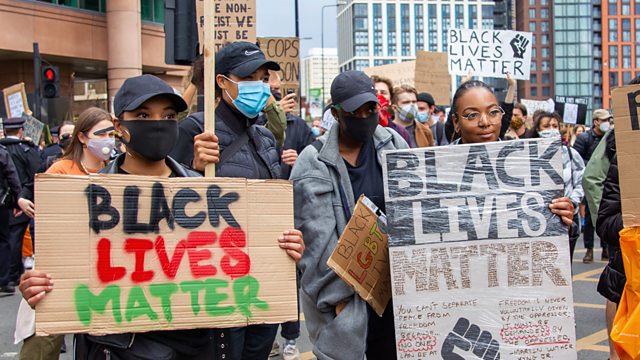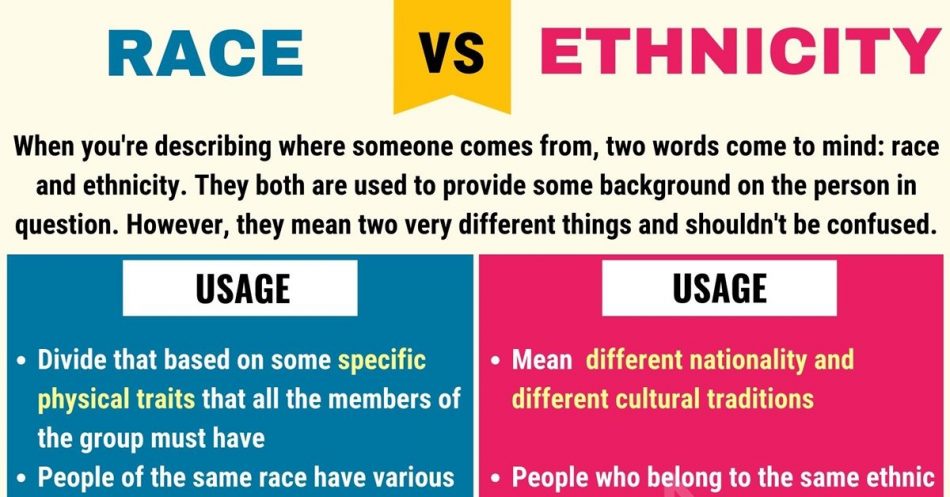
Page description
Explore the concept of race, including its social, historical, and scientific dimensions, and understand its impact on society and identity.
One of the main groups to which people are often considered to belong, based on physical characteristics that they are perceived to share such as skin colour, eye shape, etc.:
People of many different races were living side by side.
Cambridge Dictionary
Race and the Death Penalty.
Back to menu IMPORTANT CONTENT
The concept of “race” is complex and has been the subject of debate and controversy for centuries. Some key points to consider about race include:
Race is a social construct: Although many people think of race as a biological or genetic concept, in reality it is a social construct that has been created and defined by humans. There is no scientific basis for race, and different societies and cultures have defined race in different ways.
Race is based on physical traits: Despite being a social construct, race is often associated with physical characteristics such as skin color, facial features, and hair texture. These physical traits are often used to group people into racial categories.
Race has been used to justify discrimination and oppression: Throughout history, race has been used to justify discrimination and oppression of certain groups of people. For example, in the United States, black people were enslaved for centuries and subjected to discrimination and segregation even after slavery was abolished.
Race intersects with other forms of oppression: Race intersects with other forms of oppression such as gender, class, and sexuality. For example, black women may experience discrimination not only because of their race, but also because of their gender.
Race is not fixed or static: Racial identity can be fluid and change over time. People may identify with different racial categories depending on their experiences and social context.
Race is not the same as ethnicity: While race is often based on physical characteristics, ethnicity refers to a shared cultural identity, such as language, religion, and customs. Ethnicity can also be a social construct, but it is not based on physical traits in the same way that race is.
This is why they are BANNING black history in schools..
Back to menu IMPORTANT CONTENT
1 Piers and Alex Clash Over Prince Harry and Meghan’s Accusations of Racism | Good Morning Britain
9 mrt. 2021
2 Air Force Lt. Gen. addresses cadets about racism incident
29 sep. 2017
race
noun (PEOPLE)
a group, especially of people, with particular similar physical characteristics, who are considered as belonging to the same type, or the fact of belonging to such a group:
People of many different races were living side by side.
Discrimination on grounds of race will not be tolerated.
An increasing number of people in the country are of mixed race
(= with parents of different races).
[ C, + sing/pl verb ]
a group of people who share the same language, history, characteristics, etc.:
The British are an island race.
More examples
She teaches the students to have respect for different races and appreciate the diversity of other cultures.
Primitive races colonized these islands 2000 years ago.
People should not be stigmatized on the basis of race.
Today, many Americans are still grappling with the issue of race.
Discrimination on the basis of race, gender, age or disability is not allowed.
Cambridge Dictionary 3 Top Army leaders fired, suspended from Fort Hood after Guillen investigation | Nightline
5 nov. 2014
5 Race is a fiction. Racism is not: Francys Johnson at TEDxUGA
8 apr. 2014
6 The Story of Race: A History
14 jul. 2009

USA: A discussion about race
BBC world Service: Heart and Soul
In this special American Impendence day program, presenter Martin Bashir brings together Ilyasah Shabbaz – the third daughter of Malcolm X, Joshua DuBois – President Obama’s former spiritual advisor and Lama Rod Owens – a Buddhist Black radical thinker to discuss the nature of the Black Lives Matter movement.
They discuss the objectives and methods of the movement and interrogate if the use of violence is a necessary evil in search of equality.
The three guests draw upon their own respected faith traditions as well as the experience of being African American in modern day America to share their views on how best to achieve equal rights.
Presented by Martin Bashir
Produced by Rajeev Gupta
(Photo: Black Lives Matter protest, June 2020. Credit: Jo Holland/BBC)
27 minutes



7 Race and Ethnicity
27 okt. 2010
8 What is Ethnicity?
13 feb. 2019
Join us on Patreon! https://www.patreon.com/originofevery…
What’s the difference between race and ethnicity? Can a person have more than one ethnic identity? Today Danielle explores the history and evolution of different ethnicities that make up America. Check out Say it Loud! https://www.youtube.com/watch?v=J3Dx6…
Written and Hosted by: Danielle Bainbridge
Produced by Complexly for PBS Digital Studios
—
Follow us on…
Facebook: https://www.facebook.com/originofever…
Instagram: https://www.instagram.com/pbsoriginof…
—
Origin of Everything is a show about the undertold histories and cultural dialogues that make up our collective story. From the food we eat, to the trivia and fun facts we can’t seem to get out of our heads, to the social issues we can’t stop debating, everything around us has a history. Origin of Everything is here to explore it all. We like to think that no topic is too small or too challenging to get started
Works Cited:
Dick Hebdige Subcultures
Asian American Studies The Hyphen
Benedict Anderson Imagined Communities
Stuart Hall
with John Clarke, Tony Jefferson and Brian Roberts, ‘Subcultures, Cultures and Class: A theoretical overview’, in Stuart Hall and Tony Jefferson (eds), Resistance through Rituals: Youth Subcultures in Post-War Britain (London: Hutchinson, 1976), pp. 9–74.
— with John Clarke, Tony Jefferson, and Brian Roberts, ‘Subcultures, Cultures, and Class: Some definitions’, Working Papers in Cultural Studies, nos 7/8 (Summer 1975), 9–74.
— with Tony Jefferson (eds), Resistance through Rituals: Youth Subcultures in Post-War Britain (London: Hutchinson, 1976).
“Race: The Floating Signifier”
Yu, H. (2014). Ethnicity. In B. Burgett, & G. Hendler (Eds.), Keywords for American cultural studies (2nd ed.). New York, NY: New York University Press. Retrieved from http://turing.library.northwestern.ed…
Keywords for Asian American Studies, edited by Cathy J. Schlund-Vials, Linda Trinh Võ, and K. Scott Wong. New York: New York University Press, 2015.
“ethnicity, n.”. OED Online. December 2018. Oxford University Press.
https://www.history.com/topics/americ…
http://www.pbs.org/race/000_About/002…
http://www.pbs.org/race/000_About/002…
http://www.pbs.org/race/000_About/002…
http://www.pbs.org/race/000_About/002…
http://www.pbs.org/race/000_About/002…
http://www.pbs.org/race/000_About/002…
http://www.pbs.org/race/000_About/002…
https://www.history.com/topics/black-…
Nell Painter: The History of White People
Walter Mignolo Darker Side of Western Modernity
Matthew Frye Jacobson Whiteness of a Different Color: European Immigrants and the alchemy of race
Cheryl Harris “Whiteness as Property”
Emmanuel Chukwudi Eze On reason: rationality in a world of cultural conflict and racism
Fredrickson, G. M. 1987. The Black Image in the White Mind. Middletown: Wesleyan University Press.
9 – 1993 – The racial disparity in neighboring Illinois cities
8 jun. 2020
IMPORTANT CONTENT
11 – 1968 – 60 Minutes reports on police in America
8 jun. 2020
12 – 1980 – Ex cop: Milwaukee police covered-up the murder of a black man
8 jun. 2020
13 – 1968: MLK’s family speaks to 60 Minutes following his assassination
22 jun. 2020
14 The Myth of Race | Sharad Paul | TEDxAuckland
14 jul. 2016
15 Standing up to a discriminatory draft board put a man in exile for nearly 40 years
22 jun. 2020
22 jun. 2020
17 Black bank manager to sue Metropolitan Police for racial discrimination after 26-month nightmare
12 jun. 2020
18 The Concept of Race with Richard Lewontin
In this Hitchcock Lecture from UC Berkeley, evolutionary geneticist Richard Lewontin reviews a number of studies on the genetic differentiation between individuals within local populations, of local populations within classic geographical races and between races. He shows that almost all human genetic variation is contained between individuals within any local population and that the consequences of repeated migrations, invasions, and mixture between groups destroys any clear racial boundaries. [2/2004] [Show ID: 8456]
More from: UC Berkeley Graduate Lectures
(https://www.uctv.tv/gradcouncil)
Explore More Public Affairs & Politics on UCTV
(https://www.uctv.tv/public-affairs)
Public Affairs UCTV goes beyond the headlines to explore economics, public policy, race, immigration, health policy and more. Hear directly from the researchers so you can be informed to make important decisions.
Explore More Science & Technology on UCTV
(https://www.uctv.tv/science)
Science and technology continue to change our lives. University of California scientists are tackling the important questions like climate change, evolution, oceanography, neuroscience and the potential of stem cells.
UCTV is the broadcast and online media platform of the University of California, featuring programming from its ten campuses, three national labs and affiliated research institutions. UCTV explores a broad spectrum of subjects for a general audience, including science, health and medicine, public affairs, humanities, arts and music, business, education, and agriculture. Launched in January 2000, UCTV embraces the core missions of the University of California — teaching, research, and public service – by providing quality, in-depth television far beyond the campus borders to inquisitive viewers around the world.
19 The Origin of Race in the USA
3 apr. 2018
Origin Of Everything
284K abonnees
Viewers like you help make PBS (Thank you 
Subscribe to Origin of Everything! http://bit.ly/originsub
Do you believe that your race correlates to your skin tone? Because that wasn’t always the case. So how did Americans come to believe that race equals certain visible physical characteristics such as skin color and hair? And why is it that certain ethnic groups that were once considered “non-white” became reclassified as “white”? Watch the episode to find out.
Like our Facebook Page: https://www.facebook.com/originofever…
Instagram: @pbsoriginofeverything
Written and Hosted By: Danielle Bainbridge
Graphics By: Noelle Smith
Edited By: Linda Huang
Produced By: Kornhaber Brown (www.kornhaberbrown.com)
Works Cited:
http://www.pbs.org/race/000_About/002…
http://www.pbs.org/race/000_About/002…
http://www.pbs.org/race/000_About/002…
http://www.pbs.org/race/000_About/002…
http://www.pbs.org/race/000_About/002…
http://www.pbs.org/race/000_About/002…
http://www.pbs.org/race/000_About/002…
https://www.history.com/topics/black-…
Nell Painter: The History of White People
Walter Mignolo Darker Side of Western Modernity
Matthew Frye Jacobson Whiteness of a Different Color: European Immigrants and the alchemy of race
Cheryl Harris “Whiteness as Property”
Emmanuel Chukwudi Eze On reason: rationality in a world of cultural conflict and racism
Fredrickson, G. M. 1987. The Black Image in the White Mind. Middletown: Wesleyan University Press.
Smedley, A. 1993 (1999). Race in North America: Origin and Evolution of a Worldview. Boulder: Westview Press.
Stepan, Nancy. 1982. The Idea of Race in Science. London: Macmillan.
https://www.nytimes.com/2017/03/17/us…
https://opinionator.blogs.nytimes.com…
“race, n.6”. OED Online. January 2018. Oxford University Press. http://www.oed.com/view/Entry/157031?… (accessed March 12, 2018)
http://www.latimes.com/opinion/op-ed/…
20 What is it like being black in India? BBC News
15 apr. 2016
21 John H. McWhorter | Losing the Race: Black Progress, Freedom, and Independence
6 feb. 2015
Slant
To present information in a particular way, especially showing one group of people, one side of an argument, etc. in such a positive or negative way that it is unfair:
The police claimed that reports in the media were slanted against/towards the defendant.
Cambridge Dictionary
Episode 1: Why Black Africans Were Historically Viewed As A Threat ?
7 apr 202
Episode 1: Why Black Africans Were Historically Viewed As A Threat ?
The view that Black Africans were historically viewed as a threat is a complex issue with multiple factors. One significant factor is the history of colonialism and the European conquest of Africa. European powers colonised Africa for its natural resources, and the perception of Africans as “primitive” or “uncivilised” was used to justify the exploitation and subjugation of African peoples.
Another factor is the transatlantic slave trade, which saw millions of Africans forcibly taken from their homes and transported to the Americas as slaves. The dehumanization of Africans as property and the violent treatment they received from their slave owners further reinforced the perception of Africans as a threat.
Additionally, racism and prejudice against Black people have been pervasive throughout history and continue to be a problem today. This bias has often led to the assumption that Black people are inherently violent or dangerous, perpetuating the stereotype of the “angry Black man” or “aggressive Black woman.”
In short, the perception of Black Africans as a threat has deep roots in history, including colonialism, slavery, and ongoing prejudice and discrimination. It is a complex issue that requires a nuanced understanding of history and culture to fully grasp.
============================
Let’s come together in reasonable dialogue to honor our ancestors and reclaim the world through an African lens. Join me as we delve into African history, culture, and worldview to better understand their relevance to our lives today. By sharing our thoughts and knowledge, we can pave the way for a new culture of awareness and reclaim our story. As the African Diaspora saying goes, “I am because we are, and we are because I am.”
24 Sexy Ass Grabbing Robot Prank